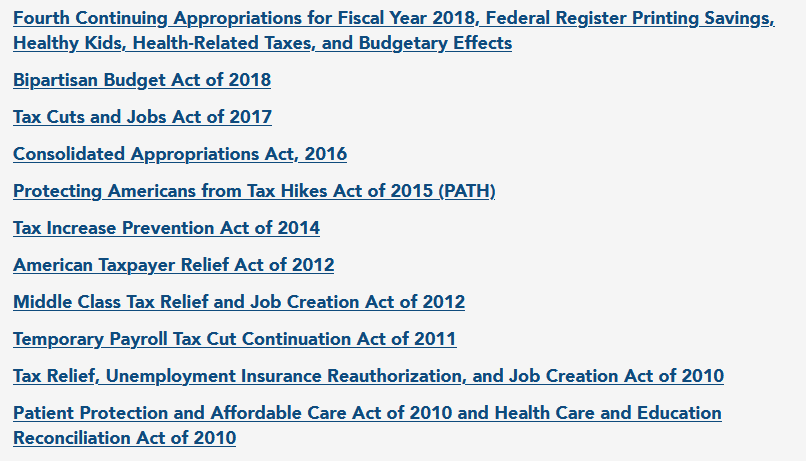Creating and implementing an estate plan is generally not a fun process. It’s time consuming, involves thinking about our own demise, and often quite expensive. Once you have gone through the struggle of paying to get estate planning documents drafted and making all the recommended changes, you may think to yourself, “I hope I never have to do that again!”
Alas, it’s not that simple. Planning for your estate involves a complex combination of your financial situation and personal circumstances, your wishes and viewpoints, and the ever changing laws and rules that govern estate and tax planning.
As a result, many estate planning attorneys recommend a standard “5-year check-in” when it comes to refreshing your estate plan. But does this apply to every situation? What about your situation?
Here are the main reasons to consider talking with an attorney about updating your estate plan:
#1 – Moved to a New State
This is a pretty simple one. If you move to a different state, talk with an estate planning attorney. A qualified attorney can help you amend your estate plan to conform with the laws of your new state of residence. This could save your loved ones some major headaches.
#2 – Will or Trust Beneficiaries Have Changed
If your beneficiaries have changed, then in most cases you need to update your estate plan. Sure, you can update beneficiary designations on IRAs, 401(k)s, 403(b)s, life insurance, etc. without much fuss. But changing any beneficiaries named in your will or trust will require an amendment to the relevant document.
#3 – Change in Your Wishes
How do you feel about your current estate plan? Do you still want your neighbor Bob to have power of attorney? Does your advanced medical directive still reflect your wishes about end-of-life healthcare?
If your current wishes do not align with your existing estate plan, then it’s likely time for an amendment.
#4 – Change in Laws or Regulations
The laws and regulations around estate and tax planning change quite often. If you doubt this, take a visit over to the Tax Policy Center to see a list of major federal tax legislation by decade. Below is the major legislation for the 2010-2019 time period:

To these, you can add the SECURE and SECURE 2.0 legislation, which both enacted big changes. And many of the individual tax changes contained in the Tax Cuts and Jobs Act will disappear in a few years, which essentially represents another major change event to your tax planning.
To put it simply, estate planning attorneys get paid well because they stay on top of the changes and help their clients plan a way forward.
#5 – Change in Your Assets
A major change in your financial assets may also warrant talking to an estate planning attorney.
For example, did you…
- buy or sell real estate?
- inherit a large sum?
- add more life insurance?
- enter or exit a business?
- experience a large increase or decrease in your net worth?
- change the structure or set up of your financial accounts?
Answering yes to any of these could mean it’s time to talk with your estate attorney.
#6 – Your Plan is Very Old
If you have never had the pleasure of actually using a power of attorney (POA) document, then I recommend reading this article. In reality, getting a bank or business to honor a power of attorney is an arduous task, even on the best of days. However, what if the POA was drafted 10-15 years ago? Fuhgeddaboudit! Most bank representatives will laugh you right out of the building.
The sad reality is many banks or businesses will often deem old documents as less trustworthy. There is no legal reason for this. But in many cases, honoring a POA represents a substantial business risk for any bank or financial institution. So by choosing to disallow the use of an old POA, the bank is typically making a decision to protect their business interests.
For this reason, many estate planning attorneys will recommend that you refresh items like your POA or advanced medical directive every 5 years. This will reduce the chance that a bank, business, or hospital will fail to honor the documents in your estate plan.
#7 – Change in Your Family Structure
Did you get married or divorced? Did you add a child to your family? Have you lost a loved one?
Any significant change to the structure of your family means that it is a good time to talk to an estate planning attorney.
I spoke with an estate planning attorney who had a horror stories about a divorced couple. One of the spouses had remarried, but had forgotten to remove the ex-spouse as a beneficiary on the main retirement account.
Fast forward about 15 years, the individual dies and the current spouse is shocked to learn that they won’t receive the millions of dollars that they were expecting. In the end, the new spouse had to beg (literally, beg) the ex-spouse to release their claim on the assets. It was not a pleasant situation and it all could have been avoided by talking to an estate planning attorney.
#8 – Change in Health Status or Care Needs
Were you diagnosed with a terminal or chronic illness? Will you need long-term care services? Do you have a child with special needs?
If you answered yes to any of these questions, then it’s likely time to talk with an estate planning attorney. Situations like these often involve the use of trusts to avoid Medicaid clawbacks or to fund living expenses and care needs for a special needs child. And often these strategies have to adhere to complicated, bureaucratic rules. It’s best to work with an expert to help you put them in place.
In Summary
Life is not one-size-fits-all. While many estate planning attorneys recommend the standard “5-year check in”, this is more of an average or rule of thumb. In my experience, it’s often better to make a decision after considering your personal situation and needs. However, when in doubt don’t be afraid to consult with an estate planning attorney. In my experience, the cost of a good estate plan is more than justified as an investment in your future and that of your loved ones.

